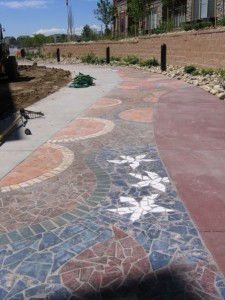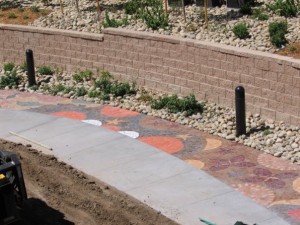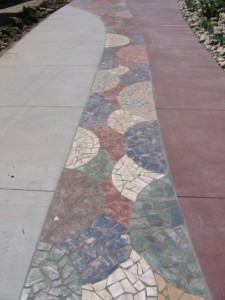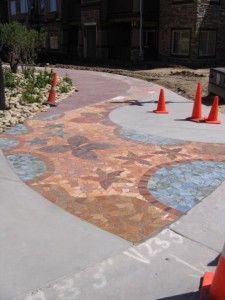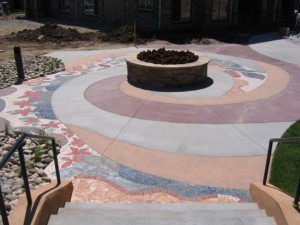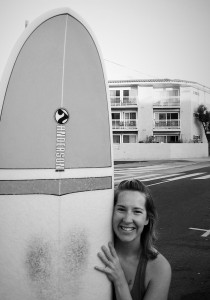At the beginning of February I was in Nairobi, Kenya for a course called, Being a Leader and the Effective Exercise of Leadership: An Ontological/Phenomenological Model. The course took place over seven days. Close to 100 people from 14 countries participated. It was really awesome.
At one point in the course, the leader asked us to consider our “life sentences.” Our life sentences comprise the boxes inside of which we live, breathe, and relate to the world. In a nutshell, mine is, “I’M NOT SAFE.” Because of my life sentence, I see much of life through a filter of safe or unsafe. My jail cell, as you might imagine, is not exactly expansive.
As we looked at our life sentences, we looked at moments in life when we decided we would never be enough of something. We specifically looked at decisions we made as children. I wrote:
I’ll never be as pretty as that girl (omitting names here).
I’ll never be as cool as those kids.
I’ll never be as rich as the kids from Circle Drive.
I’ll never be as liked as everyone else.
I’ll never be white.
That last one threw me for a loop. I’ll never be white? As if to confirm it for myself, I looked down at the skin on my arm. It was white. I’m white. But there it was—I’ll never be white.
I wrote some more. I’ll never be rich, goody-two-shoed, safe, perfect, or fake.
Wow. So that’s what I thought “white” was? And I decided when I was 10 that I would never be that?
What followed was a series of life-changing insights.
I went to an elementary school with students from a working-class neighborhood (where my dad lived), a wealthy neighborhood (where white kids lived), and Stapleton and Park Hill (where black kids lived). From my little kid perspective, none of the white kids had divorced parents, all of them were rich, and most of them didn’t really like me. I found over time I had more in common with black kids than I did with white kids. In fact, I kind of hated white kids.
That feeling grew as I went to middle and high school. I found myself connecting with more and more black friends and feeling very out of place with white people. Nothing about the experiences they were having seemed to match the experiences I was having, and I was clear I was not one of them.
Yet I was also clear that I wasn’t black. Sure, I had black friends, black mentors, and spent much of my time submersed in black culture, but I knew I wasn’t black. Simple comments like, “You’re cool for a white girl” made that crystal clear.
The result was that I never felt at home. I had no real sense of belonging, and I wandered through elementary, middle, and high school feeling very alone, depressed, and scared. To compensate for my experience (something we always do in response to our life sentences), I became independent, tough, and introspective. I longed to make it on my own, avoid rejection, and discover who I was. My methods of compensation led me down many paths in my life—some of beauty and some of pain.
I shared this insight with my friends in the course and, on the last day, with everyone in the course. As I shared, I realized that not being white had served me well. It had lead me to understand white privilege and social injustice. It had sent me to school to study international affairs and political science. It had sent me to Africa, Spain, Italy, Greece, Turkey, Mexico, Peru, and Portugal. It had taken me to hip-hop and African dance classes. It had stirred in me my passion for human rights. It had allowed me to fall in love with people of various races and backgrounds. It had influenced me to embrace and be proud of my Lebanese and Greek ancestry. I had led me to be at home in virtually every country I visited. It gave me so much.
It also made me blindly racist. For as long as I can remember, in my mind, people of color could do no wrong. White people, meanwhile, were almost always wrong. They were the capitalists, the wrong-doers, the colonists. They were the ignorant, the rude, the brutal. They were the shallow, the wealthy, the opportunists. In my mind, they could do no right. People of color, meanwhile, were always innocent victims. Pretty disgusting, right?
Until I distinguished it in Kenya, all of this simmered just below the surface of my consciousness. I never would have guessed that I made the decision to never be white. I have lots of white friends, I love my white family members, and I even sometimes embrace that I’m half English! (Funny, right?)
But I could never fully be with white people. Furthermore, I could never fully be with people of color. I could only really be with my 10-year-old assessment of what it meant to be any particular race. Even with my hard-earned capacity to love and honor people, I couldn’t fully be with the real person right in front of me, in the moment.
And one of the impacts on me, as I also shared with the people in the course, was that I could never find my home. I could never feel that I belonged.
After I shared my insight with the course, one of my soul sisters approached me and said, “Annie Rose, you belong to the human race. The human being is your home.”
And indeed, that’s true.
It amazes me that we always have room for growth. I have an enormous capacity to be present with people and to be authentically loving. I’m distinctly aware of my prejudices and incredibly willing to take responsibility for them. I’ve spent a lot of years looking at myself and distinguishing my disempowering contexts and stories. I’m incredibly self-aware. (I’ve compensated for my life sentence, after all, by searching for who I am.)
Yet here I am, recognizing and peeling away yet another layer.
The liminal space is open for infinite adventure and exploration.
Beautiful, isn’t it?
In love and liminality,
Annie Rose
(Here are some of my friends from the course. We spent 7 days digging into life with each other!)
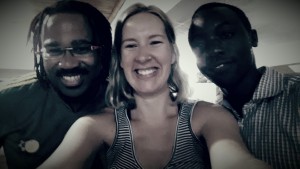 Zolani and Meshack
Zolani and Meshack 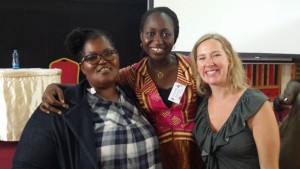 Olive and Olayide
Olive and Olayide 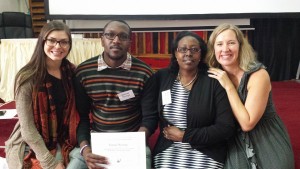 Ashley, Samuel, and Damaris
Ashley, Samuel, and Damaris
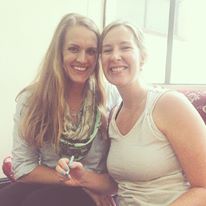 Kristine
Kristine
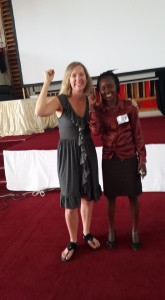 Rachael
Rachael

 Zolani and Meshack
Zolani and Meshack  Olive and Olayide
Olive and Olayide  Ashley, Samuel, and Damaris
Ashley, Samuel, and Damaris Kristine
Kristine Rachael
Rachael